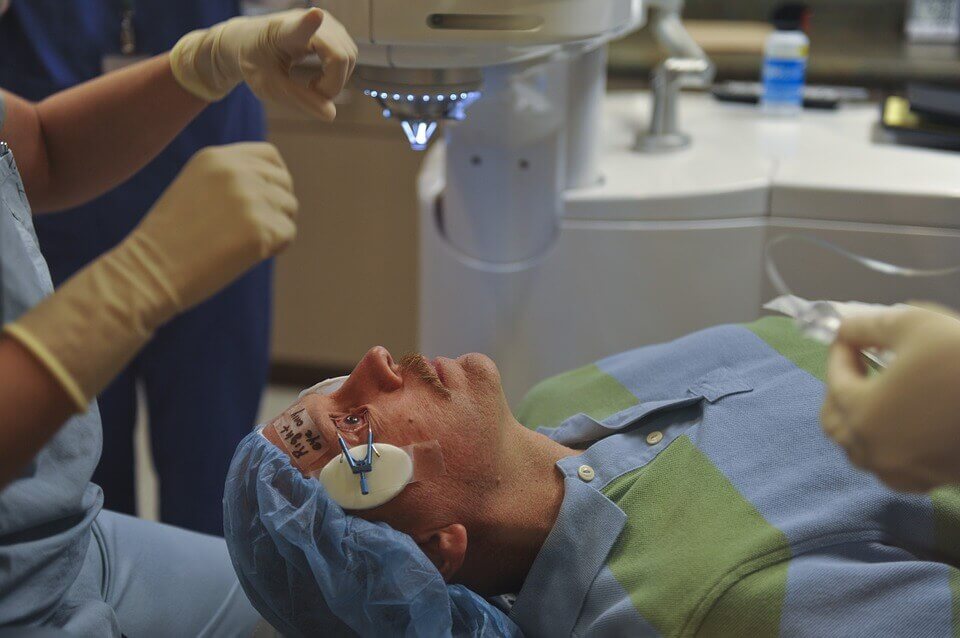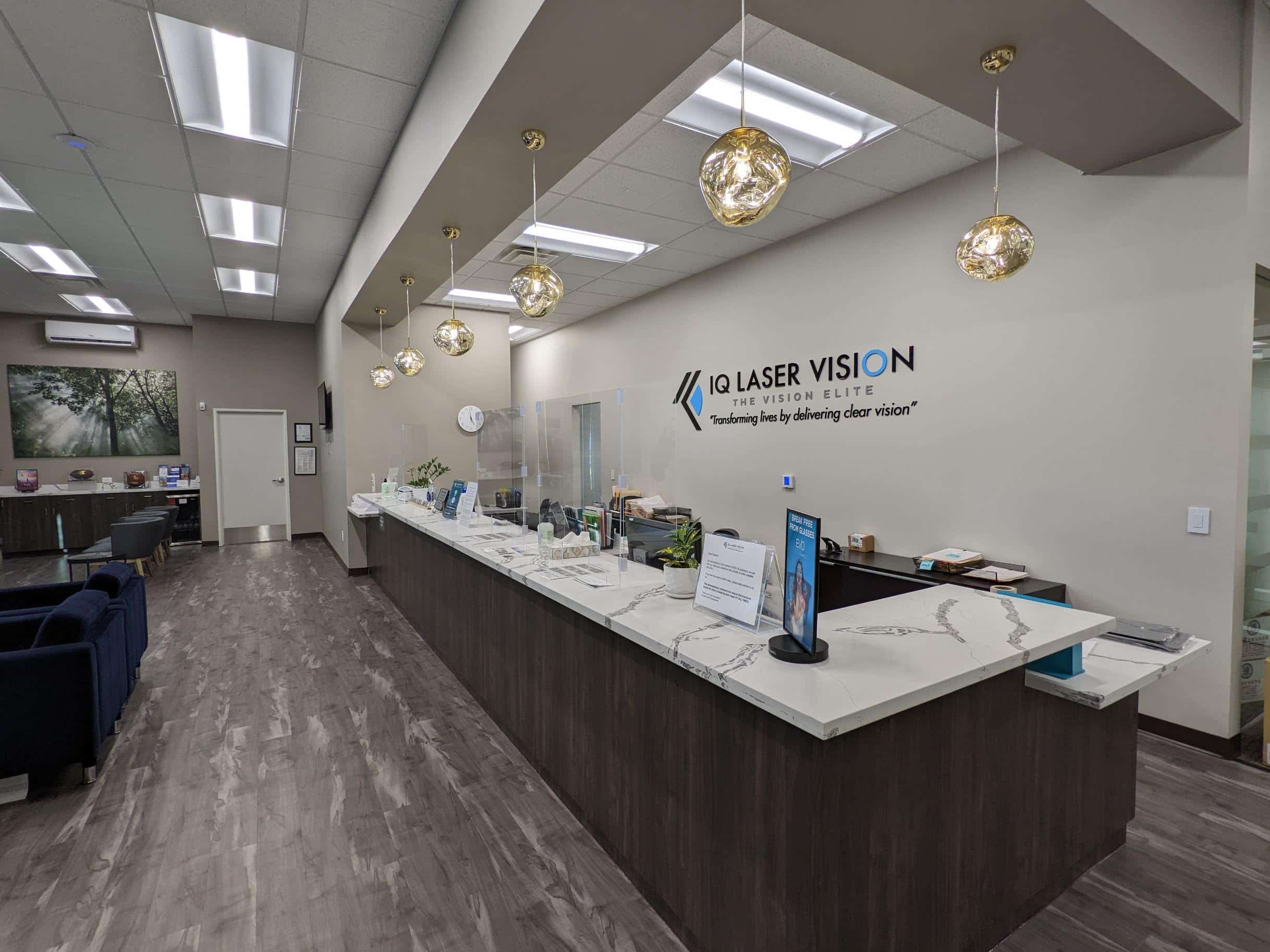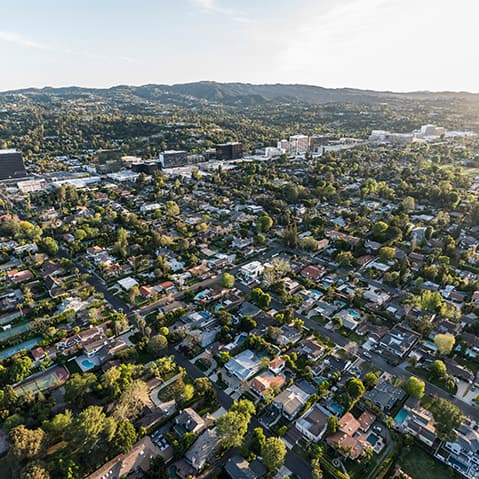Does LASIK Hurt? When it comes to correcting problems with your vision. LASIK is one of the most common and popular solutions on the market. LASIK eye surgery is a highly sought-after procedure because it’s quick, the results are phenomenal, and it’s incredibly safe. There is very little risk of any side effects when you get LASIK to correct refractive vision errors.
If you wear glasses or contacts, you have likely considered laser eye surgery as a long lasting treatment solution. And for anyone who has considered undergoing the procedure, it’s only natural to ask, ‘is LASIK painful’. In short, no it’s not. Most people do not feel any pain during the procedure and for most, recovery is easily managed with pain medication.
Another great thing about LASIK, is that the recovery process often begins very quickly. Which means that you can start to see results fast and get back to your normal activities within a few days.
Continue reading to learn more about what you can expect during laser eye surgery so you can choose whether to proceed with treatment with confidence.

Does LASIK Hurt?
‘Is LASIK eye surgery painful’ is one of the most commonly asked questions for those enquiring about the procedure. Rest assured that the majority of patients find the treatment painless. It’s common to feel a little pressure in your eye at the beginning of the surgery, however, this shouldn’t cause you any pain.
Let’s learn more about the process itself.
At the beginning of the procedure, anesthetic drops are used to numb the surface of your eye. These drops will effectively block any pain and discomfort as well as preventing your eyes from drying too much during the surgery. A speculum is then used to ensure that your eye stays open during the process.
The majority of patients will remain awake during the procedure without general anesthesia. This means that you can communicate with your surgeon throughout. They will talk you through the process step by step and if you feel any discomfort, you can inform your surgeon as soon as it arises.
As the anesthetic drops wear off, it’s not uncommon to experience some itchiness, dryness and burning sensations in the eye. But don’t be concerned, this will wear off after your nap in just a few hours as the eye starts its healing process. Many patients describe this to feel as though they have something in their eye.
Pre-Surgery Evaluations: Ensuring a Smooth Procedure
Before undergoing LASIK, patients go through a thorough pre-surgery evaluation to determine their suitability for the procedure. This assessment plays a crucial role in minimizing discomfort and optimizing results.
- Corneal Thickness Measurement: Ensuring your cornea has adequate thickness is essential for a successful LASIK procedure.
- Tear Production Assessment: Those with dry eyes may receive recommendations for treatment before LASIK to prevent discomfort during the healing process.
- Refractive Error Evaluation: Advanced diagnostic tools ensure that the procedure is tailored to your specific vision correction needs.
Recovering From Laser Eye Surgery
When it comes to recovery from laser eye surgery, you may experience some minor discomfort. In the first day or two after surgery, it’s common to experience blurry vision and a heightened sensitivity to light, but this shouldn’t cause you pain. Most patients report that these symptoms clear up reasonably quickly, within 24 to 48 hours of treatment.
During recovery, your consultant will give you advice on how best to manage your symptoms. This could include medicated eye drops as well as the suggestion of using protective eye wear, resting your eyes and avoiding touching them. In this recovery period if you do feel pain, this could be a sign of infection or a dislodged cornea, so it’s important to get in touch with your doctor if severe pain or discomfort appears.
If you’re worried about there being pain for several months after LASIK surgery, you should be able to rest assured. It’s very unlikely that any issues will happen after LASIK surgery. And even if they do, they’re usually very short-term issues that correct themselves. For most people, the recovery period for LASIK won’t last any longer than six months. You might experience a few fluctuations in your vision during this time.
Long-Term Benefits of LASIK
While the short-term recovery process is relatively quick and easy, the long-term benefits of LASIK make the procedure even more appealing.
- Permanent Vision Correction: Most patients achieve 20/20 vision or better, reducing or eliminating the need for glasses and contact lenses.
- Improved Quality of Life: Whether it’s sports, travel, or daily activities, LASIK allows for greater freedom without the hassle of corrective eyewear.
- Cost Savings Over Time: While LASIK requires an upfront investment, the long-term savings from not needing glasses, contact lenses, and related accessories can add up significantly.
Finding The Right Clinic
Your experience with laser eye surgery will be impacted by the clinic that you choose. And the question ‘how painful is LASIK eye surgery’ may come down to the experience and expertise of your surgeon. When looking for a eye clinic to perform your treatment, consider the following aspects:
Experience
As with any medical procedure, experience is key. Look for both clinics and surgeons that have years of experience and large numbers of successful treatments. This is a good indicator that you will be in good hands in their care.
Affordability
On the whole, LASIK eye surgery is a relatively affordable treatment when compared with the quality of life improvements it provides. Consider affordability when looking for a clinic and remember that price doesn’t always indicate quality. If a clinic offers finance options or payment plans, this could aid in your decision making.
Testimonials
The best way to predict your care with a clinic is by reading through the testimonials of existing patients. This method will answer the question ‘does LASIK surgery hurt’ from those who have been through the same procedure at the same clinic and can help to put your mind at rest.
Want to Learn More About LASIK Eye Surgery?
Whether you were born with poor vision, or it’s developed over time, there has never been a better time to correct your vision and avoid reliance on glasses and contacts. With LASIK surgery, you’ll benefit from a quick and pain free procedure with fast recovery time. If you are over 18 years of age, have a stable prescription and are generally in good health then you’re the perfect candidate.
Learn more about LASIK surgery by getting in touch with IQ Laser Vision. Our free consultation provides the perfect opportunity to raise any queries and learn more about the procedure. We look forward to hearing from you soon.























